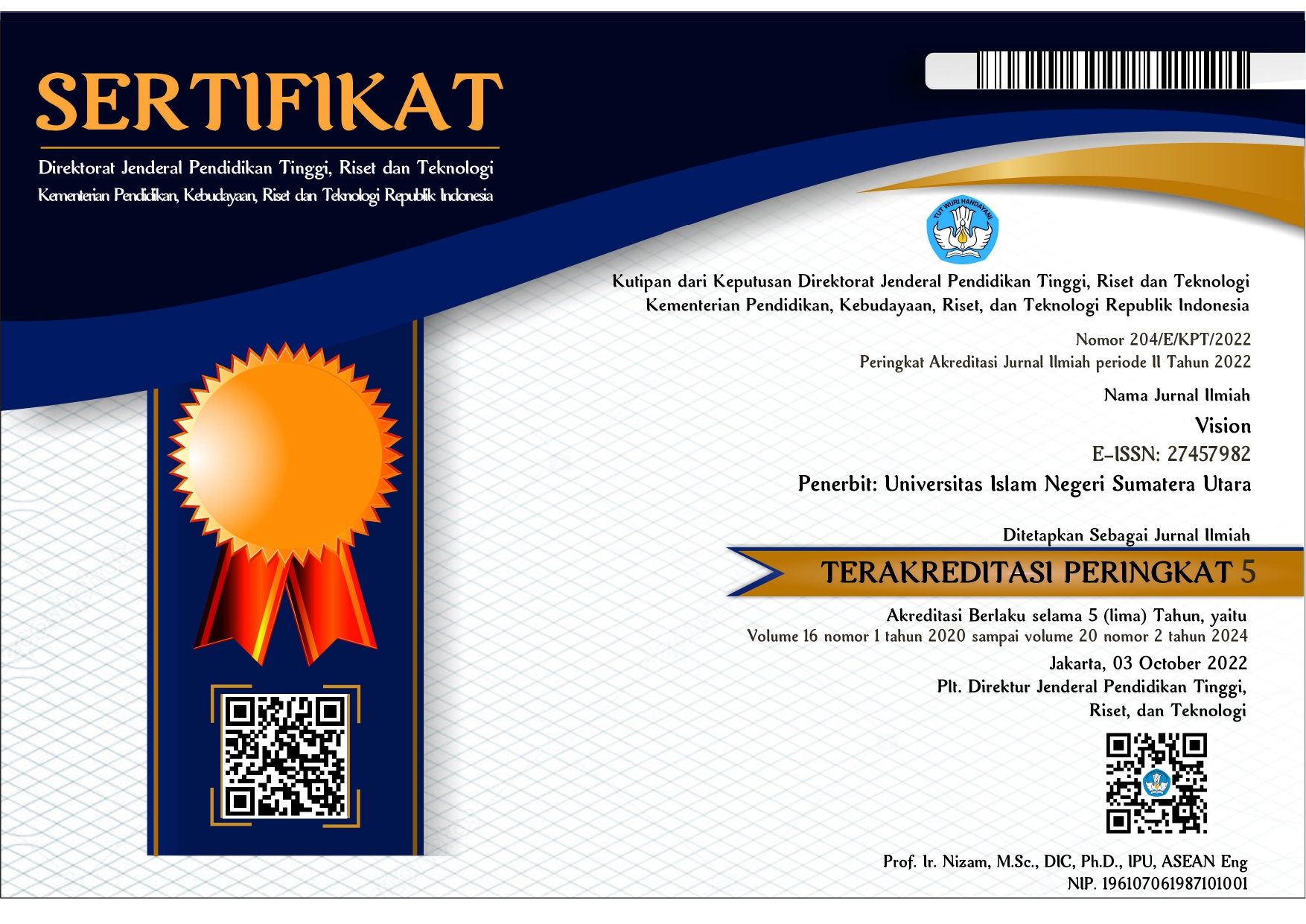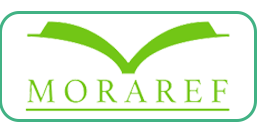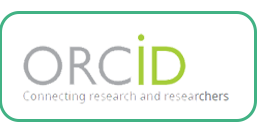THE EFFECT OF SELF -TALK STRATEGY ON STUDENTS SPEAKING ABILITY FOR ELEVENTH GRADE OF SMK SWASTA SWAKARYA SALAPIAN
Abstract
The purpose of this research is to know the effect of Self Talk Strategy on students’ speaking ability in academic year 2021\2022. The type of this research is quasi experimental group. It is a research to know that the effect between two variables, there are dependent variable is using Self Talk Strategy and independent variable is students’ speaking ability. This research was done at Smk Swasta Swakarya Salapian in academic year 2021\2022. The population of this research was three classes the total of the students was 88 students. Sample of the research was taken by two classes, for experimental class and control class. Based on the data, the result of in significance 5%, result was 1,029 > 0, 3365 it means that there was a significance effect between Self Talk Strategy to the students’ speaking ability in eleventh grade of Smk Swasta Swakarya Salapian in academic year 2021\2022.
Keywords
Full Text:
PDFReferences
Arikunto, S. (2010). Research Procedures A Practice Approach. Jakarta: Rineka Cipta.
Ary, Donald. L,Cheser Jacobs and C,K.Sorensen. (2010). introduction to research in education. Wadsworth:Cengange Learning.
Basturkmen, H. (2002). Learner Observation of and Reflection on Spoken Discourse: An Approach for Teaching Academic Speaking. TESOL Journal: V.11.
Bernard, (2005). The Effects of Self-Talk on the Level of Success in College Students. University of New Orleans.
Brown, (2004). language Assessments: Principles and Classroom Practices.San Fransisco State University.
Brown, (1994). Teaching by principles: an interactive approach to language pedagogy. Englewood Cliffs, NJ: Prentice Hall Regent.
Culton, (2015). Self-talk repertoire of physical education teachers. Journal of Physical Education, Recreation & Dance
Grayam, L. (2010). Writing Photo Captions, Redbubble Artistic Journal, (Online). (https://www.redbubble.com/people/grayam/journal/4742583-writing-photocaptions, accessed December 2019).
Haddoune, (2006). Reflection on students’ self-efficacy expectancies : Paving the path to better achievement outcomes in Higher education. Department of English, University Badji Mokhtar Annaba, Algeria
Halliday, M.A.K and Hasan, R. (1976). Cohesion in English. London: Longman Group Limited.
Helmstetter, S. (1982). What To say When You Talk Yourself. New York: Grindle Press
Indari, Ayu. 2020. The Problem in Speaking For Department in Students in STKIP BUDIDAYA Binjai. Journal Serunai Bahasa Inggris. Vol 12 No. 1.
Latief, (2015). Research Methods On Language Learning : An Introduction. Malang. UM, Press Liswinarni
Linnér, L. (2010). The effects of instructional and motivational self-talk on selfefficacy and performance in golf players. (C-uppsats i psykologi inriktning idrott, 61-90 hp). Sektionen för Hälsa och Samhälle. Högskolan i Halmstad
Nurdianti, Astri. (2020), The Application Of Self Talk Strategy In Teaching Speaking Skill, Thesis. Makassar : FKIP Muhammadiyah Makassar
Nunan, D. (1989). Designing Tasks for the Communicative Classroom. New York: Cambridge University Press.
O‟Malley, J. M., et al. (2002). Learning strategies in second language scquisition.Cambridge: Cambridge University Press.
Parvizi, (2012). Effect of attentional focus of self-talk on anxiety and learning under pressure. European Journal of Experimental Biology. Pelagia Research Library
Pollard, Andrew. (2008). Reflective Teaching 3rdEdition:EvidenceInformed Professional Practice.Continuum International Publishing Group
Recap. (2004). Positive Self Talk.Strategies and Their Achievement in Speaking: A Case Study at SMP Negeri 3 Padang Panjang: Commonwealth of Australia
Richards. J. (1990). The Language Teaching Matrix. Cambridge: Cambridge University Press.
Sugiyono. (2013). Metode Penelitian Kualitatif, Bandung :Alfabeta
Tarigan, H. Guntur. (1990). Prinsip-prinsip Dasar Metode Riset Pengajaran dan Pembelajaran Bahasa. Bandung: Angkasa.
Vygotsky, L. (1978). Thought and language. USA: The Massachusetts Institute of Technology.
Zetou, (2014). The effect of instructional self-talk on performance and learning the backstroke of young swimmers and on the perceived functions of it. Democritus University of Thrace, Department of Physical
DOI: http://dx.doi.org/10.30829/vis.v18i1.1415
Refbacks
- There are currently no refbacks.
Copyright (c) 2022 VISION
















